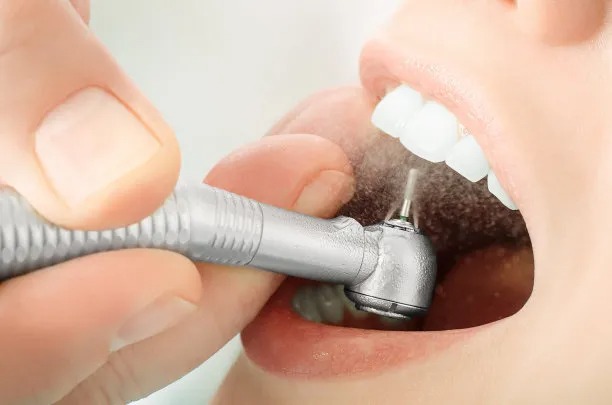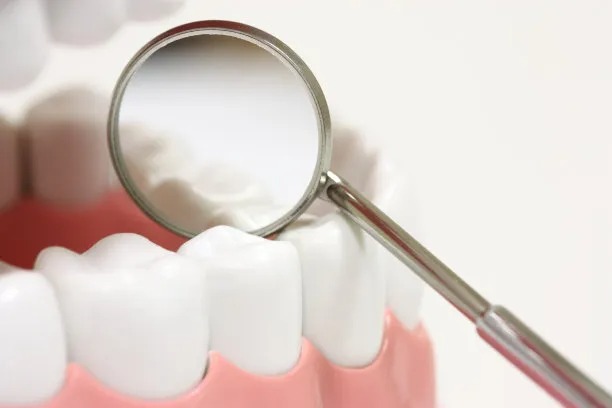Summary: Tooth extraction is a common dental procedure that has significant implications not only for oral health but also for overall wellness. This article explores the process of tooth extraction, detailing the indications and methods, the pain management techniques involved, the subsequent impact on oral health, and the broader effects on physical and mental well-being. Understanding these aspects can help patients make informed decisions and prepare for the post-extraction recovery phase effectively. Ultimately, this knowledge aids in maintaining optimal oral hygiene and contributes to a holistic approach to health.
1. Understanding the Need for Tooth Extraction

Tooth extraction is often necessitated by various dental issues, including decay, infection, overcrowding, and periodontal disease. When a tooth is severely damaged or decayed, it may no longer be salvageable through restorative procedures like fillings or crowns. In such cases, extraction becomes essential to prevent further decay or infection from affecting surrounding teeth and gums.
Another common reason for tooth extraction is overcrowding, particularly when a patient is preparing for orthodontic treatment. Dentists may recommend removing specific teeth to create enough space for proper alignment. This is especially prevalent among adolescents whose mouths may not accommodate all their erupting teeth.
Additionally, wisdom teeth are often extracted as they can pose numerous complications, including pain, infection, or impaction. Understanding the various conditions that necessitate tooth extraction is crucial for patients, as it highlights the importance of timely dental interventions.
2. The Tooth Extraction Procedure Explained
The tooth extraction procedure varies in complexity, depending on whether the tooth is visible or impacted. For a simple extraction, the dentist will numb the area with local anesthesia, making the process relatively painless. The dentist will then loosen the tooth with specialized instruments before gently removing it from its socket.
In contrast, an impacted tooth, such as a wisdom tooth, may require a more intricate surgical procedure. This involves incisions in the gum tissue and the potential removal of bone to access the tooth fully. After the extraction, the dentist will provide aftercare instructions, which are crucial for a smooth recovery.
Understanding the procedure demystifies the experience, alleviating anxiety many patients feel about undergoing tooth extraction. Being informed about what to expect can foster a sense of control and preparedness during the dental appointment.
3. Managing Pain and Recovery After Extraction
Pain management is a crucial aspect of the tooth extraction process. Dentists typically prescribe over-the-counter pain relievers or, in more severe cases, narcotics to mitigate discomfort post-surgery. Ice packs applied externally can help reduce swelling and pain as well.
Recovery after a tooth extraction varies from patient to patient, but there are general guidelines that should be followed to ensure optimal healing. Patients are advised to rest for at least 24 hours following the procedure, avoiding rigorous activities that may disrupt blood clot formation.
Proper oral hygiene is equally important during recovery. Patients should rinse their mouths gently with salt water and avoid brushing directly over the extraction site for a few days. Paying attention to these aftercare practices can significantly influence the healing process and the overall success of the extraction.
4. Long-term Oral Health and Wellbeing Effects
The long-term impact of tooth extraction on oral health can be significant. Without proper care, the absence of a tooth can lead to shifting of adjacent teeth, which can ultimately result in bite misalignment. This can cause difficulties in chewing and may lead to further dental issues, necessitating additional treatment.
Moreover, there鈥檚 a psychological component to consider. Tooth loss can affect an individual鈥檚 self-esteem and confidence, particularly if it is visible. Studies indicate that individuals who have undergone tooth extraction without proper replacement options, like implants or bridges, often experience social withdrawal.
Lastly, maintaining routine dental visits is vital post-extraction to monitor the healing process and ensure that other teeth are not adversely affected. Creating individualized dental care strategies, including regular cleanings and check-ups, is essential for sustaining overall health post-extraction.
Summary:
In summary, tooth extraction is a procedure that, while necessary in many instances, has extensive implications for both oral health and overall wellbeing. Understanding the reasons, processes, and consequences of tooth extraction equips patients with the knowledge needed to navigate their dental care effectively.
This article is compiled by Vickong Dental and the content is for reference only.
Vickong Dental
Vickong Dental is a large medical group established in Hong Kong in 2008 by professors from well-known medical universities in Guangdong and Hong Kong, as well as medical doctors from key national '985' universities (including Master's supervisors and senior professors). The chain of branches brings together expert dentists with PhDs and Master's degrees from Hong Kong and Mainland China, committed to providing high-quality dental treatment.
"Vickong Dental Practices the University Motto of 'Healing and Serving Society,' with a Stable Operation for Sixteen Years. It Has Been honored with Hong Kong Enterprise Leaders's Choice,' and is a Global Trusted Implant Center for the Nobel Implant System. Recommended by Hong Kong Metro Broadcast and Guangdong Television, it Serves Customers from Over Thirty Countries and Regions, Gaining the Trust and Favor of Citizens from the Guangdong-Hong Kong-Macau Greater Bay Area and Surrounding Cities.

Thousands of customers' unanimous praise
The most recognized and highly recommended dental service by customers in the Guangdong-Hong Kong-Macau Greater Bay Area
We Ensure You Receive Detailed Care and Attention Here
Hong Kong standards, Shenzhen prices, Your Trusted English-speaking dentists

Vickong Dental Medical-Grade Instrument Disinfection Process
Vickong Dental Medical-Grade Instrument Disinfection Process

Vickong Dental Chain: A Warm and Comfortable Environment for Treatment






Appointment Hours

Q&A
Why choose Vickong Dental?
Vickong Dental practices the university motto 「Medicine to Benefit Society」, with each branch bringing together highly qualified dentists with doctoral and master’s degrees from Hong Kong and the Mainland, and has maintained seventeen years of steady operation。Recipient of 「2024 Hong Kong Enterprise Leaders Brand」, 「2025 Hong Kong Enterprise Leaders Brand」, a Nobel Biocare Global Trusted Implant Center, and a brand recommended by Metro Radio Hong Kong and Guangdong TV。
To date, we have served customers from more than thirty countries and regions,earning exceptionally high word-of-mouth recognition and trusted recommendations from residents across the Guangdong-Hong Kong-Macao Greater Bay Area and surrounding cities
We have eight major branches in Zhuhai、Shenzhen,and a consultation and service assurance center in Hong Kong,so you can book a free consultation at any time for any questions,which is very reassuring.
If I do not accept the quotation after the CT scan, will I be charged??
No! As long as the actual treatment has not started, you will not be charged any fees.
Will there be any additional charges during the treatment process?
No, there won’t be any additional charges. Before treatment begins, we will clearly explain the treatment plan and its corresponding fees. Only after the patient agrees and signs the consent form will we proceed with the dental service.
Can I pay in Hong Kong dollars?
Yes. Vickong Dental accepts payment in Hong Kong dollars. The amount will be converted based on the exchange rate of the day, and the applicable rate will be clearly communicated to you in advance.
Can I reschedule my appointment at any time?
Yes. Please contact us via **WeChat** or **WhatsApp** as early as possible, providing your original appointment time and details, along with your preferred new date and time slot for rescheduling.













